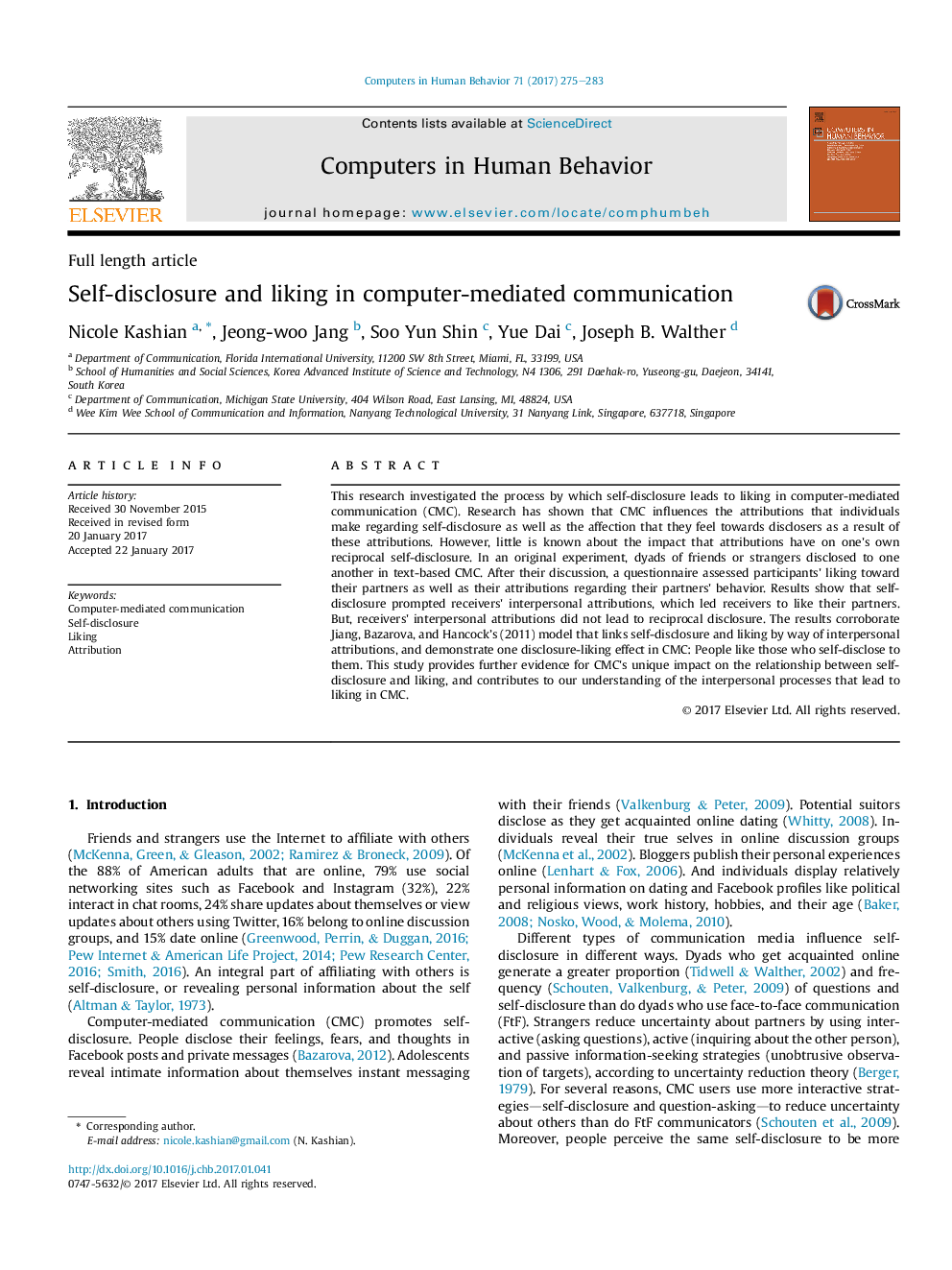| کد مقاله | کد نشریه | سال انتشار | مقاله انگلیسی | نسخه تمام متن |
|---|---|---|---|---|
| 4937362 | 1434620 | 2017 | 9 صفحه PDF | دانلود رایگان |
عنوان انگلیسی مقاله ISI
Self-disclosure and liking in computer-mediated communication
ترجمه فارسی عنوان
افشای خود و دوستداشتن در ارتباطات کامپیوتری
دانلود مقاله + سفارش ترجمه
دانلود مقاله ISI انگلیسی
رایگان برای ایرانیان
کلمات کلیدی
ارتباطات با واسطه کامپیوتر، افشای خود، عادت ماهیانه شناسایی،
موضوعات مرتبط
مهندسی و علوم پایه
مهندسی کامپیوتر
نرم افزارهای علوم کامپیوتر
چکیده انگلیسی
This research investigated the process by which self-disclosure leads to liking in computer-mediated communication (CMC). Research has shown that CMC influences the attributions that individuals make regarding self-disclosure as well as the affection that they feel towards disclosers as a result of these attributions. However, little is known about the impact that attributions have on one's own reciprocal self-disclosure. In an original experiment, dyads of friends or strangers disclosed to one another in text-based CMC. After their discussion, a questionnaire assessed participants' liking toward their partners as well as their attributions regarding their partners' behavior. Results show that self-disclosure prompted receivers' interpersonal attributions, which led receivers to like their partners. But, receivers' interpersonal attributions did not lead to reciprocal disclosure. The results corroborate Jiang, Bazarova, and Hancock's (2011) model that links self-disclosure and liking by way of interpersonal attributions, and demonstrate one disclosure-liking effect in CMC: People like those who self-disclose to them. This study provides further evidence for CMC's unique impact on the relationship between self-disclosure and liking, and contributes to our understanding of the interpersonal processes that lead to liking in CMC.
ناشر
Database: Elsevier - ScienceDirect (ساینس دایرکت)
Journal: Computers in Human Behavior - Volume 71, June 2017, Pages 275-283
Journal: Computers in Human Behavior - Volume 71, June 2017, Pages 275-283
نویسندگان
Nicole Kashian, Jeong-woo Jang, Soo Yun Shin, Yue Dai, Joseph B. Walther,
